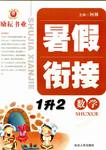题目内容
Oscar-winning director Ang Lee' s new epic "Life of Pi" reveals the relationship between a teenage Indian boy and a Bengal tiger. But in reality, the predators(食肉动物)are under increasing threat from humans. Animal rights group PETA is hoping to use the popularity of the film to focus people's attention on the real life of Bengal tigers.
With the rising demand for tiger parts from East Asia, illegal hunting remains a tremendous danger for the remaining cat population. Back in 1947, there were 40,000 tigers in India, but the number is experiencing a sharp decline t0 1,706 despite campaigns to protect the animal.
Rising man-animal conflict is also one of the leading causes of decline in tiger numbers. In one of numerous reported attacks on the endangered big cats, villagers near The Bangladesh-India border, armed with sticks and boat oars, set upon the animal suspected to have attacked a local fisherman and beat it to death earlier this month. So far this year, 58 tiger deaths have been reported in the country.
"The first instinct when a tiger is spotted is to just kill it,"grieved Gurmeet Sapal, a wildlife filmmaker. "The feeling of fear and revenge is so strong that it shuts out any other emotion. What we don' t realize is that the tiger never attacks humans until it is forced to. "'
India has been struggling to stop the tiger's decline in the face of the loss of habitat as well that encourages the animals to leave the forest for food. " The tiger's rapidly exhausted prey base causes the predator to go al! out to get its food. Consequently, livestock and human beings become easy prey, which leads inevitably to conflict," says a wildlife conservationist.
Filmmaker Sapal says it is only normal for people to think of the tiger as a dangerous animal, but its image as a human killer bears some injustice. "Tigers never kill for sport nor store meat. They kill their prey only in case of hunger. "
- 1.
How can PETA take advantage over the hot movie “ Life of Pi ”?
- A.PETA can count on the movie to promote people' s awareness of tiger' s life
- B.PETA can make enough money by encourage people to watch the movie
- C.The movie demonstrates that humans and tigers can live in harmony
- D.The movie offers a wonderful opportunity for movie to act in
- A.
- 2.
Why did the villagers beat the tiger to death?
- A.Because it was a human killer and attempted to attack people
- B.Because it was suspected to be a threat to local people' s lives
- C.Because local people just followed their instinct to kill it
- D.Because people wanted to carry out their revenge for it
- A.
- 3.
According to the article, when will tigers attack and kill people?
- A.When they are annoyed by people
- B.When they have conflict with people
- C.When they are driven to act in the movie
- D.When they are hungry or attacked
- A.
- 4.
What contributes to the facts that livestock and human beings become easy target of tigers?
- A.It is easier for tigers to hunt human beings than other animal for food
- B.Tigers are losing their habitat and forced to go out of the woods
- C.People hold a strong belief that tigers are a born threat to their lives
- D.Tigers can't be treated equally as other animal in the forest
- A.
ABDB
试题分析:本文叙述了孟加拉虎减少的原因,是由于人们的猎杀或者破坏了它们的生存的栖息地,文中提到老虎从不主动攻击人,只有当它们感到饥饿或遭到攻击时,才袭击人或牲畜。
1.A 推理判断题。根据第一段中“Animal rights group PETA is hoping to use the popularity of the film to focus people's attention on the real life of Bengal tigers. 动物权益保护组织希望利用电影的流行使人们注意力聚焦于真正的孟加拉虎的生活”可以推出正确答案A项:动物权益保护组织依靠电影来提升人们对真正的孟加拉虎的生活的意识性。
2.B细节理解题。根据第三段中“set upon the animal suspected to have attacked a local fisherman and beat it to death earlier this month.因为怀疑老虎攻击了渔民而把老虎给打死了”可以得到正确答案B项。
3.D根据最后一句话“Tigers never kill for sport nor store meat. They kill their prey only in case of hunger. 老虎从来不杀人,只有饿的时候或遭到袭击时才把人当成它们的猎物” 可以得到正确答案D项。
4.B推理判断题。根据倒数第二段的叙述我们知道“因为老虎的栖息地遭到了破坏,它们不得不走出森林去觅食,所以牲畜和人类成了它们的猎物,这样不可避免地导致了冲突”,由此我们可以推断出:老虎渐渐失去栖息地而被迫外出觅食是导致牲畜和人类成了老虎攻击的靶子的原因。故答案B正确。
考点:社会生活说明文类阅读理解
试题分析:本文叙述了孟加拉虎减少的原因,是由于人们的猎杀或者破坏了它们的生存的栖息地,文中提到老虎从不主动攻击人,只有当它们感到饥饿或遭到攻击时,才袭击人或牲畜。
1.A 推理判断题。根据第一段中“Animal rights group PETA is hoping to use the popularity of the film to focus people's attention on the real life of Bengal tigers. 动物权益保护组织希望利用电影的流行使人们注意力聚焦于真正的孟加拉虎的生活”可以推出正确答案A项:动物权益保护组织依靠电影来提升人们对真正的孟加拉虎的生活的意识性。
2.B细节理解题。根据第三段中“set upon the animal suspected to have attacked a local fisherman and beat it to death earlier this month.因为怀疑老虎攻击了渔民而把老虎给打死了”可以得到正确答案B项。
3.D根据最后一句话“Tigers never kill for sport nor store meat. They kill their prey only in case of hunger. 老虎从来不杀人,只有饿的时候或遭到袭击时才把人当成它们的猎物” 可以得到正确答案D项。
4.B推理判断题。根据倒数第二段的叙述我们知道“因为老虎的栖息地遭到了破坏,它们不得不走出森林去觅食,所以牲畜和人类成了它们的猎物,这样不可避免地导致了冲突”,由此我们可以推断出:老虎渐渐失去栖息地而被迫外出觅食是导致牲畜和人类成了老虎攻击的靶子的原因。故答案B正确。
考点:社会生活说明文类阅读理解

练习册系列答案
 励耘书业暑假衔接宁波出版社系列答案
励耘书业暑假衔接宁波出版社系列答案
相关题目